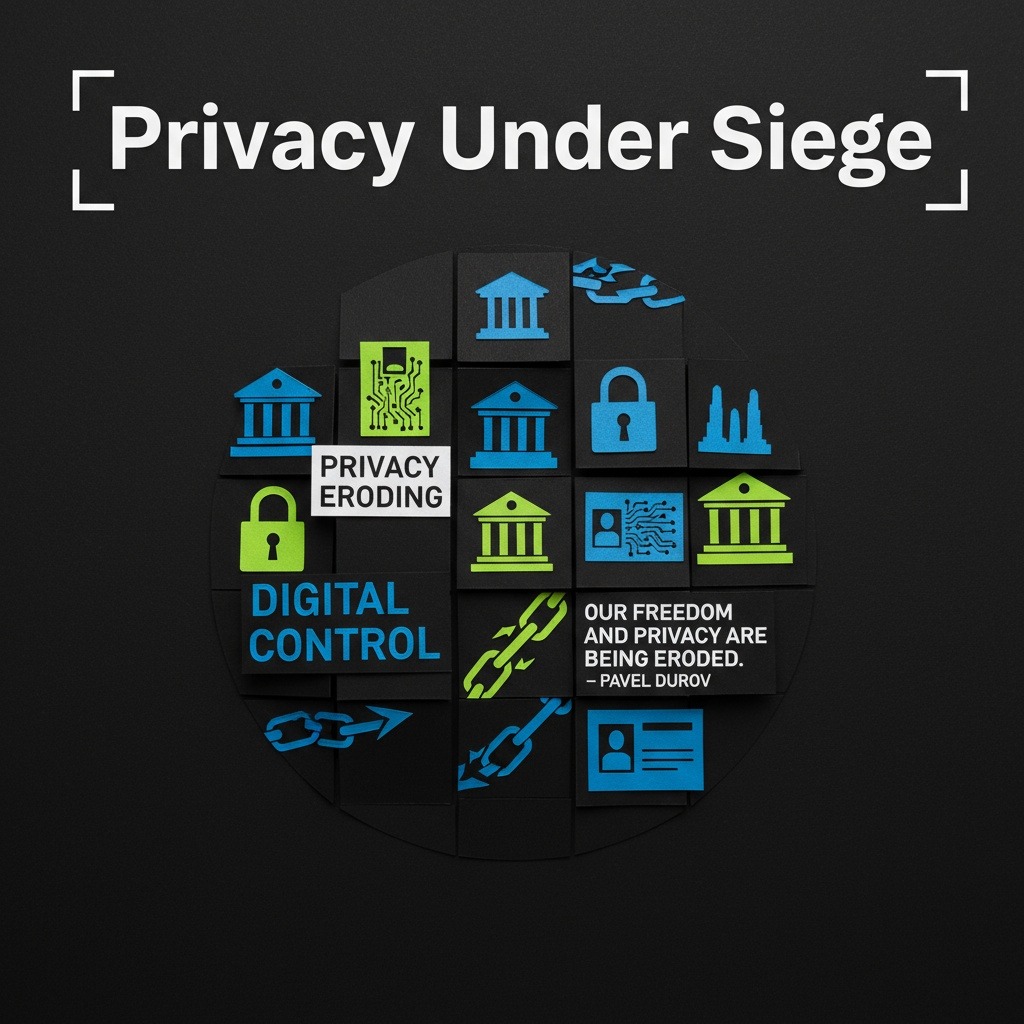Telegram CEO Pavel Durov has issued a stark warning about escalating government actions that threaten online privacy worldwide. Speaking ahead of his 41st birthday, Durov expressed deep concern that increasing regulatory measures could mark the end of the free internet generation.
In a recent post on X, Durov highlighted initiatives such as the European Union’s Chat Control proposal, the UK’s new digital identity plans, and Australia’s upcoming social media age verification system as examples of measures that could restrict online freedoms. He described these policies as steps toward a “dark, dystopian world” where the exchange of information is increasingly controlled by authorities.
Durov criticized developments in several countries: Germany reportedly cracking down on online critics of officials; the UK imprisoning thousands over social media posts; and France investigating technology leaders advocating for privacy and freedom. He warned that these trends risk making his generation the last to enjoy true digital liberty.
Privacy concerns are central to the cryptocurrency sector, including Bitcoin, which operates pseudonymously and allows peer-to-peer transactions without banks, emphasizing user confidentiality. The broad pushback against surveillance and data collection aligns with efforts by privacy-focused tech and crypto communities.
Regarding the EU’s Chat Control law, which mandates messaging platforms like Telegram, WhatsApp, and Signal to permit pre-encryption message scans by regulators, the proposal faced a significant setback. Germany’s dominant political party publicly opposed the measure, posing a major obstacle to its passage since Germany holds substantial influence in the European Parliament.
Meredith Whittaker, Signal’s president, acknowledged the relief at Germany’s stance but noted the fight continues as the proposal now moves to the European Council, where its fate remains uncertain. She cautioned that any attempt to create backdoors in encryption inherently weakens cybersecurity by opening vulnerabilities exploitable by hackers and hostile entities.
Similarly, the UK’s digital ID initiative, announced by Prime Minister Keir Starmer, aims to verify citizenship for access to government services and to combat illegal employment. However, privacy advocates worry that storing sensitive personal data in a government-managed app could lead to misuse or abuse. Over 2.8 million people have petitioned against the system, prompting parliamentary consideration.
Australia’s plan to limit social media access for users under 16 through mandatory online age verification has also raised alarms. Although intended to shield minors from harmful content, critics argue that the verification process poses substantial privacy risks.
As governments worldwide introduce laws and technologies to regulate online activities, concerns persist about the balance between security, control, and individual privacy rights. Durov’s warning underscores the urgency of these debates and the need for vigilance in protecting digital freedoms in the evolving internet landscape.



